Early Career Scientist Spotlight
Dr. Jacopo Terragni (he/him/his)
Physicist
Astrochemistry Laboratory (691)
What is your research focus?
My research focuses on exoplanets, with a particular emphasis on studying the chemical and physical properties of their atmospheres. Since these planets are located far from our own Solar System, our understanding of them relies entirely on observations. However, extracting valuable information from observations is no simple task. Atmospheric models need to be superimposed onto the received data to translate these observations into physical and chemical features of the exoplanet, and then atmospheric models can be considered as important as observations themselves. Unfortunately, models are limited because of the lack of in situ laboratory data collected at conditions like the ones observed in exoplanets. My lab research is devoted to addressing this lack of in situ data, with the goal of enhancing current exoplanet atmospheric models.
Being part of the Hot Environments Lab at NASA Goddard Space Flight Center (GSFC), my work is dedicated to measuring physical properties of atmospheric components at high temperatures, and I’m currently involved in two overarching projects. The first one consists of measuring the optical constants of atmospheric particles that are anticipated to exist around exoplanets by collecting their infrared transmission spectra at high temperatures. Our experimental setup employs a Fourier Transform Infrared Spectrometer (FTIR) in combination with a high-temperature high-pressure cell that allows us to study these atmospheric particles under extreme conditions. The second project centers on measuring the thermodynamic properties of refractory materials with a particular focus on the saturated vapor pressure. This data helps us gain a deeper understanding of the abundance of these refractory materials and their condensation process in exoplanet clouds. To conduct this investigation, I employ a thermogravimetric system alongside a Differential Scanning Calorimeter (DSC) and a Differential Thermal Analyzer (DTA).
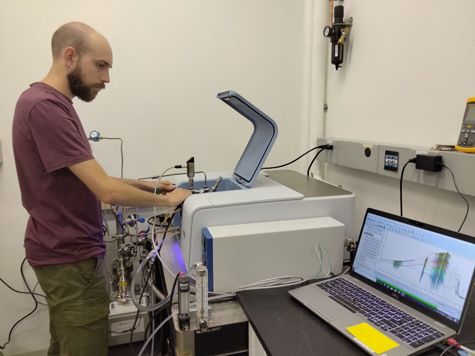
Credit: Jacopo Terragni
What do you enjoy the most about your job?
The best part of my job is knowing that the measurements I take in the lab contribute to advancing our scientific knowledge of exoplanets - those fascinating and unexplored worlds that we've only recently begun to discover. I've had the privilege of working with some incredible scientists, and I've come to understand just how crucial it is for modelers and astronomers to have reliable data upon which their observations and models can be based. That’s why I strive to be as precise and accurate as possible every single day to provide them dependable data. Exoplanets are one of the most captivating subjects in space science, and I find immense joy in the thought that my work can play a role in expanding our understanding of these celestial bodies. The prospect of contributing to unraveling the mysteries of these distant worlds really excites me! Being a part of this exploration and discovery journey is, without a doubt, the most rewarding and enjoyable aspect of my job.
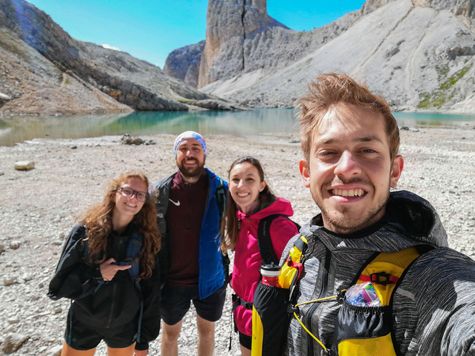
Credit: Nicolo' Terragni
What is one of your favorite moments in your career so far?
One of my favorite moments in my career thus far is linked to a lab activity during my PhD at the University of Trento (IT). At that time, we formed a close-knit group of four working on an experimental apparatus to measure the efficiency of laser-induced propulsion systems for space applications. Despite being constrained by a very limited budget, we poured our hearts into designing and refining this apparatus. The joy we experienced upon discovering that our system's accuracy surpassed all other known literature results was truly unforgettable. This moment holds a special place in my heart because it taught me two invaluable lessons. Firstly, it demonstrated how scientific ingenuity can triumph over resource constraints. We learned that with creativity and dedication, we could overcome challenges and achieve remarkable outcomes even with limited means. Secondly, this experience highlighted the significance of a harmonious working dynamic within a team to drive progress in experimental sciences. The strong chemistry between us played a crucial role in our success, as it fostered effective collaboration and motivated us to excel. Reflecting on that time fills me with immense pride, not only for the achievement itself but also for the bonds we formed as a team. It serves as a constant reminder of the power of passion, resourcefulness, and teamwork in pushing the boundaries of scientific exploration.
Where do you see yourself in the near future?
I've been at NASA GSFC for nearly a year now, and I'm excited about the possibility of continuing to work here for a few more years. From day one, the people I work with have been incredibly welcoming, and collaborating with them has allowed me to learn so much. I've gained valuable lab technical skills, deepened my understanding of astrophysics concepts, and discovered how to manage lab instruments and be part of scientific proposals. My professional growth has been significant, and I owe a lot of it to the supportive colleagues I have here at GSFC. Looking ahead in the science field is always challenging, and it becomes even more unpredictable when my wife is also a scientist (she's an astrophysicist here at GSFC). However, despite the uncertainties, I really hope that NASA will remain a part of my near future. The opportunities here are boundless, and I feel privileged to contribute to such important work.
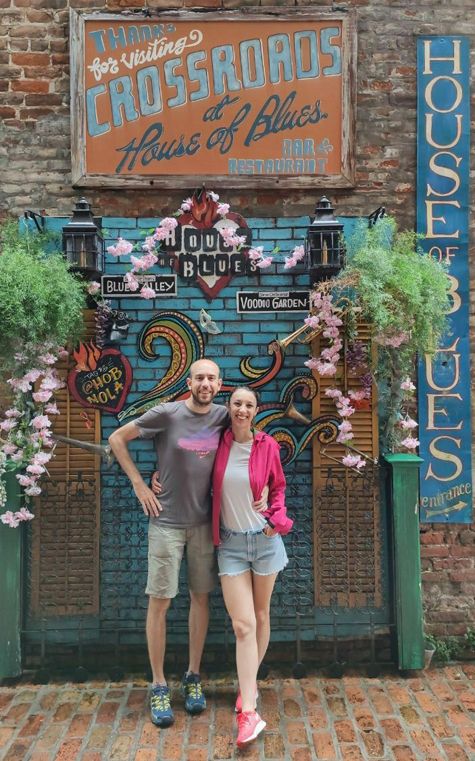
Credit: Filippo Terragni
What skills are most useful to you in your work, and where did you develop those skills?
My academic journey, which was entirely in Italy before coming to GSFC, revolved around the intersection of physics and chemistry, and it helped me develop crucial skills that I now use in my work. I started with a bachelor's degree in materials science, where I learned various chemistry and physics lab techniques that remain valuable in my everyday work. After that, I shifted to computational physics, where coding became a central part of my master's degree and continues to be essential in processing the results of my experiments. During my PhD in applied physics, I gained expertise in designing, building, and calibrating experimental apparatus, which aligns perfectly with what I've been doing since my first day at GSFC for the two main projects I'm currently involved in. I firmly believe that possessing a diverse range of skills enables researchers to approach any problem from different angles, fostering scientific creativity and introducing fresh ideas to their field.
Tell us about a unique or interesting component of your work-life balance.
Since the very beginning of my studies, playing soccer in my free time has been the key aspect of my work-life balance. I really enjoy this sport, which I've been practicing since I was a kid. When I'm on the field, I become so focused on the game that my mind takes a break from the persistent scientific questions that inevitably pop up, even when I'm no longer at work. Soccer has also been incredibly important for me to meet new people and make friends, especially when I moved to the DC area. Through soccer, I've connected with a diverse international community of amateur players, and spending time with them is an essential part of maintaining a healthy work-life balance.
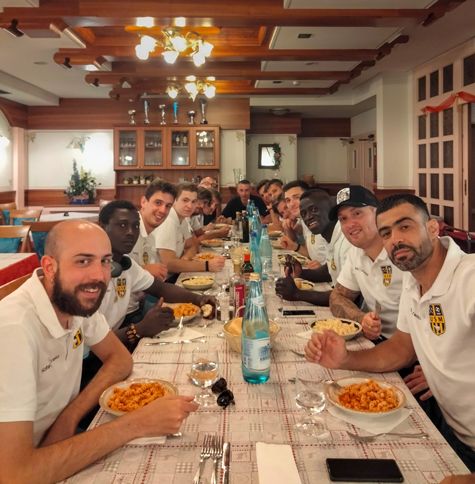
Credit: Niccolo' Carlino
Who inspires you?
The person who really inspires me in my everyday work is my paternal grandfather. I used to hang out with him a lot when I was a kid, and I still believe that the practical skills and moral values he taught me are the most important things I've learned in life. He made me understand the value of giving my best effort in everything I do, and that no matter what job you have, there's dignity in doing it well. He was born in Italy back in the early 20's and couldn't get a higher education, but when it came to fixing things and solving problems, he was a genius, especially with mechanical stuff. I try to bring a bit of his work attitude with me every morning at GSFC.
Biography
Home Town:
Milano, Italy
Undergraduate Degree:
Bachelor's degree in Materials Science, University of Milano-Bicocca, Italy
Post-graduate Degrees:
Master's degree in Theoretical and Computational Physics, University of Trento (IT)
Doctoral degree in Physics (Space Data Science and Technology Program), University of Trento (IT)
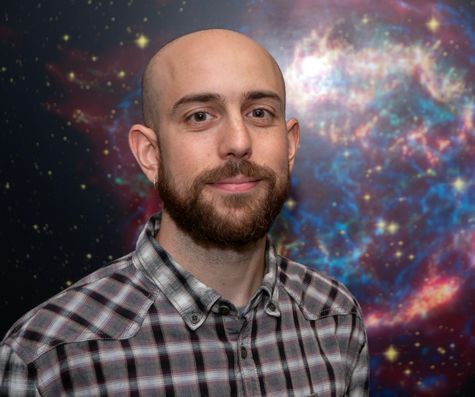
Link to Dr. Terragni's GSFC Bio
